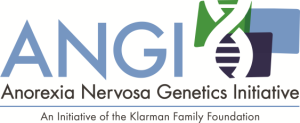Medical & Scientific Research
The Klarman Family Foundation invests in research to advance understanding of the biological basis of health and illness. As we have considered the best way for a private family foundation to have an impact, we have focused on opportunities that allow us to generate resources and knowledge for the greater scientific community, leverage those resources through collaborations, and accelerate findings.
Eating Disorders Research Grants Program
The Foundation’s Eating Disorders Research Grants Program was developed to help accelerate progress in understanding eating disorders. The program’s short-term goal is to support the most outstanding science and expand the pool of scientists whose research explores the basic biology of eating disorders. The longer-term goal is to improve the lives of patients suffering from these conditions. The most recent iteration of this grants program focuses on the study of anorexia nervosa, and on bridging the gap between neuroscience and clinical research in this field. Please click here to learn more about the Eating Disorders Research Grants Program.
Anorexia Nervosa Genetics Initiative

The Anorexia Nervosa Genetics Initiative is a global effort to detect genetic variation that contributes to this potentially life-threatening illness. Researchers from the United States, Sweden, Australia, and Denmark have collected clinical information and DNA samples from over 13,000 anorexia patients, and will compare this to DNA from people without a history of eating disorders. The goal of this initiative is to help transform knowledge about anorexia nervosa, and to expand the resources available for research. Please click here to learn how to access data from ANGI and other study cohorts.
The Broad Institute
The Cell Observatory at the Broad Institute began as a pilot effort to systematically map the cellular components of human cells and to define the cellular circuits in which they function, with the ultimate goal of better understanding human health and disease and developing effective treatments. The Observatory supports collaborations between scientists from a wide range of disciplines, and builds on innovative experimental and computational methods to advance the high throughput study of individual cells and circuits. This initiative also brings Broad and Israeli scientists together in collaborative projects to tackle major challenges in cell circuitry, in partnership with the Israel Science Foundation.
